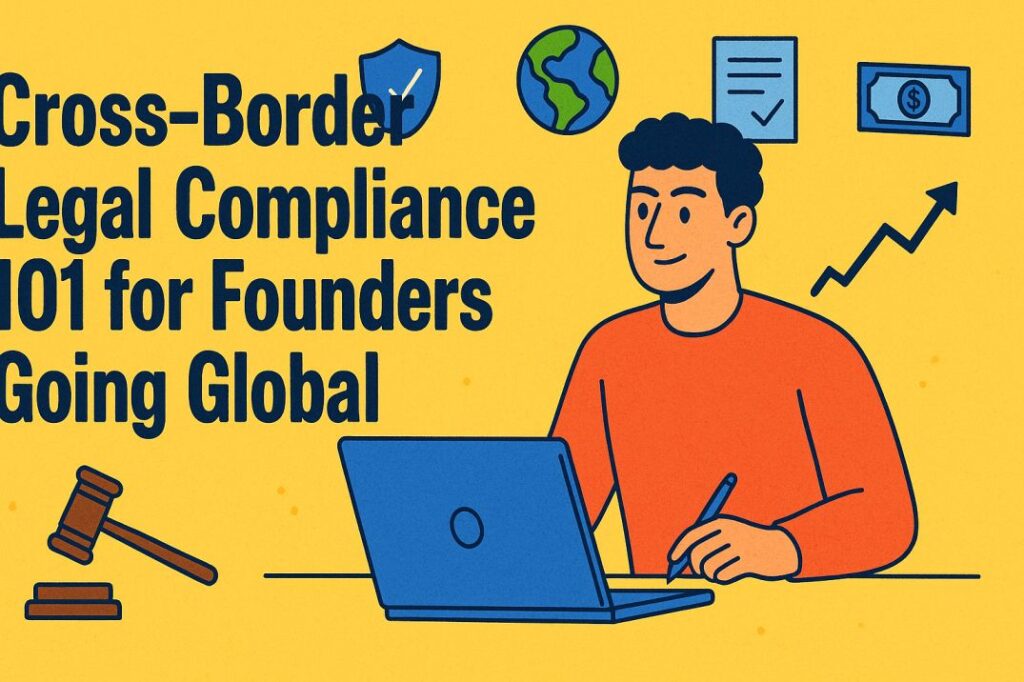So, you’ve built something awesome and now it’s time to take over the world—literally. Your startup is growing fast, you’ve got customers (or users, or fans) outside your home country, and you’re eyeing new markets. But before you set sail on your international expansion, there’s a not-so-fun but absolutely critical topic you need to wrap your head around: cross-border legal compliance.
Don’t zone out just yet. We’re not going full lawyer-mode on you. This guide is founder-friendly, startup-savvy, and caffeine-fueled. Let’s decode the legal landmines and help you go global without going to court.
What Even Is Cross-Border Compliance?
Let’s break it down Barney-style. Cross-border legal compliance means following the laws and regulations of other countries when you do business there. Every country has its own rules about how businesses operate, how customer data is handled, how you hire people, and how you pay taxes. Screw it up, and you could face fines, lawsuits, bans—or worse, a total brand meltdown.
Why Founders Must Care (Like, Yesterday)
You might think, “We’re small. We’ll deal with legal stuff later.” Bad move. Global laws don’t wait for your Series A. The earlier you build compliance into your business model, the easier it’ll be to scale. Plus:
- Non-compliance = penalties that kill cash flow.
- Investors will dig into your legal readiness.
- Customers trust companies that play by the rules.
Start with a Global Mindset, Not a Local Playbook
Too many founders think they can just copy-paste what worked at home. Nope. Think globally from day one. That doesn’t mean you have to know every law in every country, but it does mean designing systems that can adapt to local legal needs. Some tips:
- Use modular contracts that can be localized.
- Store customer data in compliance with regional privacy laws.
- Work with flexible payment gateways that support international regulations.
Key Legal Areas You Shouldn’t Ignore
Let’s walk through the biggest compliance hurdles—and how to jump over them like a boss.
🛡️ 1. Data Privacy: Don’t Be Creepy
Data is gold, but laws around it are a minefield. GDPR (Europe), CCPA (California), PDPA (Singapore)—they all have serious rules about how you collect, store, and use data.
Do this:
- Have a clear, transparent privacy policy.
- Let users opt in or out of data tracking.
- Use consent management tools for cookie tracking.
- Encrypt user data and restrict internal access.
💡 Pro tip: Make data compliance part of your product’s UX, not just a legal checkbox.
🌍 2. Taxes and Business Entity Setup: Don’t Wing It
Thinking of launching in Germany? France? Japan? You’ll probably need to set up a local entity, deal with value-added tax (VAT), and file reports—yes, even if you’re remote.
Do this:
- Talk to international tax consultants.
- Research treaty benefits for your home country.
- Consider using Employer of Record (EOR) platforms to hire abroad legally.
💡 Pro tip: Use tools like Stripe Atlas or Deel to make the red tape easier.
🤝 3. Hiring and Employment Laws: Be a Legal Boss
You can’t just Venmo someone in Brazil and call it payroll. Employment laws vary wildly, and misclassifying workers can cost you big time.
Do this:
- Understand local labor laws before hiring.
- Offer mandatory benefits (like paid leave or insurance).
- Use compliant contracts and onboarding practices.
💡 Pro tip: Platforms like Remote or Oyster can take care of international HR compliance.
📦 4. Product Compliance: Not Every Widget is Legal Everywhere
Planning to ship physical goods? Products often need to meet local standards. Think CE marking in Europe or FDA regulations in the U.S.
Do this:
- Research labeling, safety, and packaging laws in each market.
- Understand import/export duties and taxes.
- Use local distributors or customs agents if needed.
💡 Pro tip: Don’t assume your product is “safe” just because it’s approved in one country.
💰 5. Payment & Currency Rules: No Funny Business
Different countries have different rules for moving money around. Some even have foreign exchange controls that limit how you take profits out.
Do this:
- Ensure your payment processor is compliant with local financial laws.
- Understand the tax implications of converting and transferring currency.
- Get legal advice before repatriating funds.
💡 Pro tip: Use fintech tools like Wise or Payoneer for better international transfers.
When in Doubt, Lawyer Up (But Smartly)
Hiring a lawyer for every new market can get pricey, but that doesn’t mean you should DIY everything. Try these smarter options:
- Use legal tech platforms like Clerky, SeedLegals, or LawBite.
- Hire freelance legal advisors on platforms like UpCounsel or Lexoo.
- Join founder communities where people share legal templates and advice.
Checklist: Your Global Compliance Starter Pack
Here’s a TL;DR to pin on your founder fridge:
✅ Check local data and privacy laws
✅ Know the rules on taxes and corporate entities
✅ Use compliant contracts for international hires
✅ Research product compliance before selling
✅ Understand how to move money legally
✅ Work with legal pros where it counts
✅ Document everything
Final Thoughts: Global Dreams, Local Rules
Going global is exciting—but doing it the right way is what separates hype from long-term success. Think of compliance not as a boring chore, but as the foundation of your global brand. When you handle the legal stuff upfront, you’re not just avoiding trouble—you’re building trust.
So go forth, brave founder. The world is waiting. Just make sure you bring your legal A-game with you.
Bonus: Top Tools to Help You Stay Compliant
| Tool | What It Does |
|---|---|
| Deel | Global payroll & hiring |
| Stripe Atlas | Easy U.S. entity setup |
| Remote | International HR and legal compliance |
| Termly | Privacy policies & cookie compliance |
| Wise (formerly TransferWise) | Global payments & FX |
| Clerky | Legal docs for startups |
| Vanta | SOC 2 and GDPR compliance |

